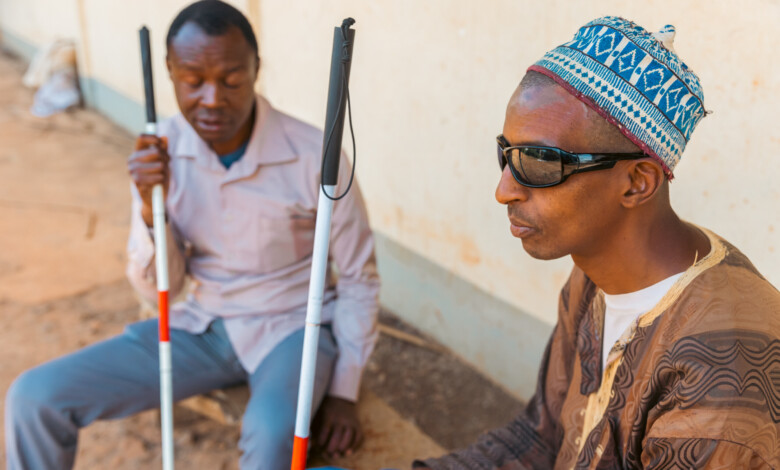Cataracts, shortage of specialists drive Uganda’s blindness crisis – medics warn

By Shahista Namale
As the global community commemorated World Sight Day, observed October 9th, Mengo Hospital took a step to align with this year’s theme of “Putting people at the heart of eye health” by providing free eye care services to over 200 individuals. This initiative came amid urgent warnings from medical experts that preventable blindness remains a major and growing public health concern in Uganda.
The scale of the issue was underscored by Dr. Lisbon Aliraki, Senior Consultant Ophthalmologist and Head of the Eye Department at Mengo Hospital, who revealed that eye diseases are a leading cause of hospital visits nationwide.
“We know that eye problems are the fifth leading cause of outpatient visits in Ugandan hospitals,” Dr. Aliraki stated during a community outreach event held by the hospital. “Unfortunately, many people still believe blindness is a matter of fate, yet most causes can actually be treated or prevented.”
In a direct effort to combat these treatable conditions, the hospital launched a two-day free eye camp, offering consultations, screenings, and discounted lenses. The outreach saw an overwhelming response, with more than 200 patients receiving free treatment on the first day alone, and even greater numbers were anticipated for the second day.
Dr. Aliraki shared alarming new data indicating that the prevalence of blindness in Uganda is far worse than earlier estimates suggested.
“Past studies put blindness at about 0.4 percent of the population, but new research conducted between 2023 and 2024 shows that in some regions, such as Karamoja, the rate is as high as 4.9 percent,” he noted.
He identified cataracts as the primary culprit behind blindness in the country, accounting for more than half of all cases, but was quick to offer a message of hope.
“Age is the biggest risk factor, but cataracts can also result from diabetes, eye injuries, or infections,” Dr. Aliraki explained, adding “the good news is that cataract blindness can be treated.”
The ophthalmologist also issued a caution against dangerous self-treatment practices, urging the public to seek professional medical help.
“Some people still believe eye problems are caused by witchcraft or spirits,” he said. “These are real diseases that need medical attention. Please come to the hospital; don’t put herbs or urine in your eyes.”
The challenge of addressing Uganda’s eye care needs is magnified by a shortage of specialists.
According to the Ophthalmology Society of Uganda (OSU), more than 400,000 people in the country suffer from visual impairment due to treatable and preventable conditions such as cataract, glaucoma, and diabetic retinopathy.
With only approximately 40 ophthalmologists serving the nation, each expert carries the immense burden of caring for more than a million Ugandans.
This context makes community outreach programs and national efforts even more vital. In line with this, Mengo Hospital’s eye department will also participate in the national World Sight Day celebrations scheduled for October 16 in Masindi District, where free eye surgeries and lenses will be provided to patients in need.






